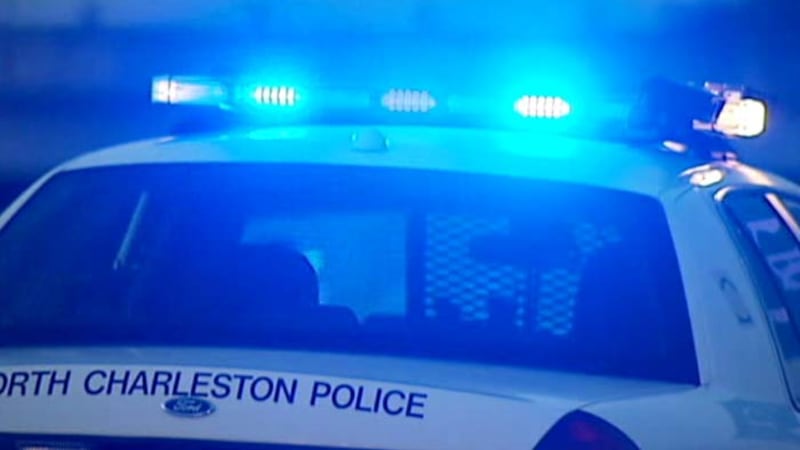Debi Chard retires from Live 5 News after almost 43 years
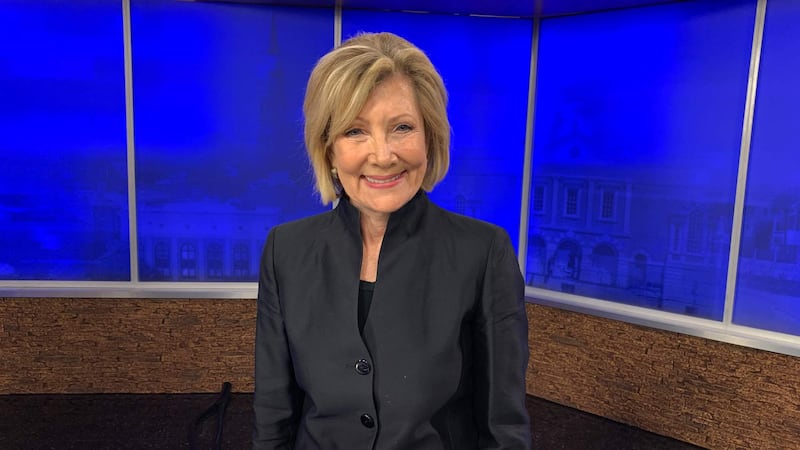
CHARLESTON, SC (WCSC) - Longtime news anchor and award-winning journalist Debi Chard signed off from Live 5 News for the last time Friday, a day after announcing her retirement from WCSC-TV.
Her final good night came after a retrospective of her career from Bill Sharpe, the man with whom she shared the anchor desk duties for the past 29 years.
“I’ve heard from so many people in the community which is really incredible. That is so touching,” she said during the final broadcast.
Chard announced her plans to retire during Thursday night’s 6 p.m. news. Her final day on the air came about a month shy of her 43rd anniversary with WCSC-TV.
“I want to thank the viewers for welcoming me into their homes,” she said in a statement. “But more importantly, I appreciate their trust and I truly feel that way.”
Chard joined the Live 5 News team on April 19, 1976, and has served in a variety of roles during her tenure at the station. Besides anchoring, she has been the medical reporter, a managing editor, an assignment editor, a producer and even news director for a time.
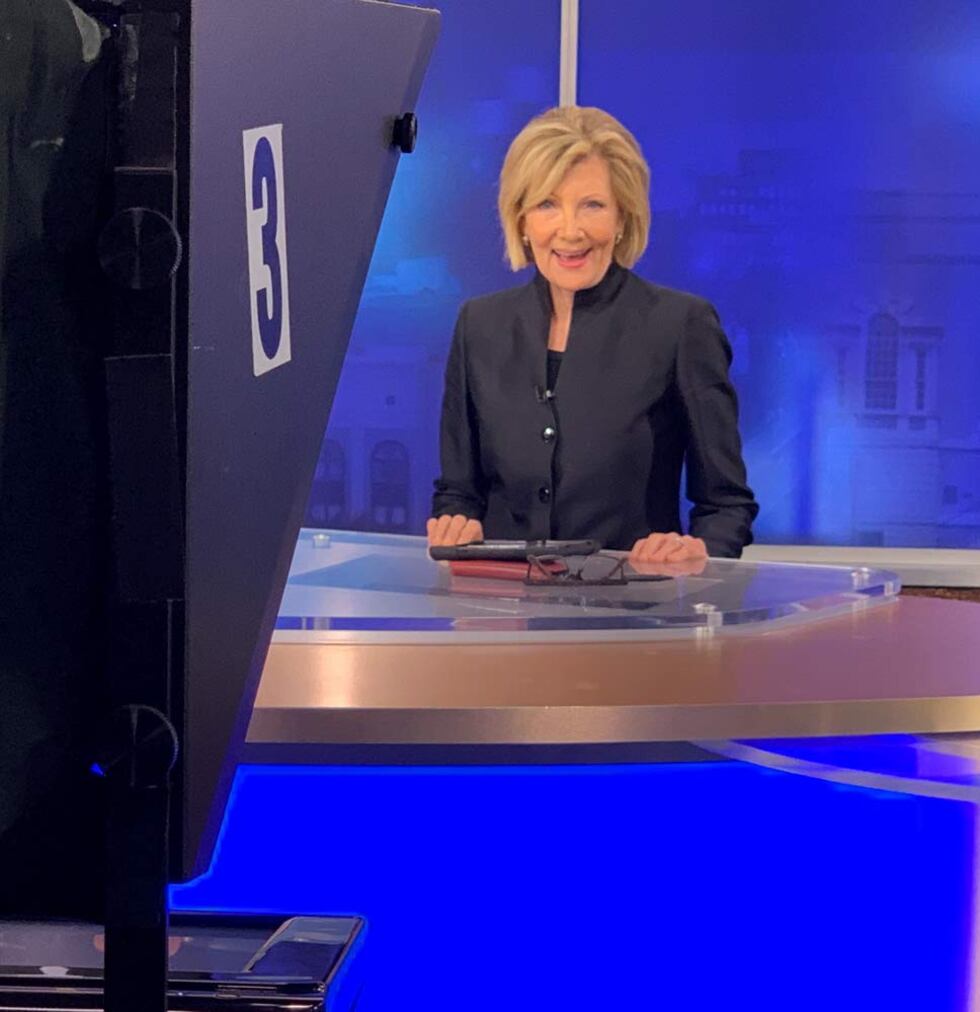
“Debi displays class, professionalism and passion every day she arrives at work,” WCSC Vice President and General Manager Dan Cates said. “It’s an honor to be her co-worker. She puts just as much work into storytelling and investigative reporting as she does on the anchor desk. Debi’s decision came a little earlier than we expected, but to announce her retirement without fanfare or bring attention to herself is ‘so Debi.’ We are proud and happy for her as she begins to enjoy retirement with her family.”
Chard says she made the decision over the past few weeks and that the time was right.
“I have so much to do and I really need time to take care of those things that are important, and everybody can relate,” Chard said. “We have family, we have family events, and I have graduations coming up and obligations to the rest of my family, especially my husband. I love Live 5 and they’re my family, but I also have to set priorities, so it’s time!”
Chard amassed a collection of awards for her news reporting.
She was part of the team that earned Live 5 News a 1990 Peabody Award in the aftermath of Hurricane Hugo in September 1989.
She won multiple awards from South Carolina Medical Association and a national award in 2005 from the American College of Neurosurgeons and was a Kaiser Family Foundation Mini-Fellow. The South Carolina Associated Press awarded her many awards throughout her television career.
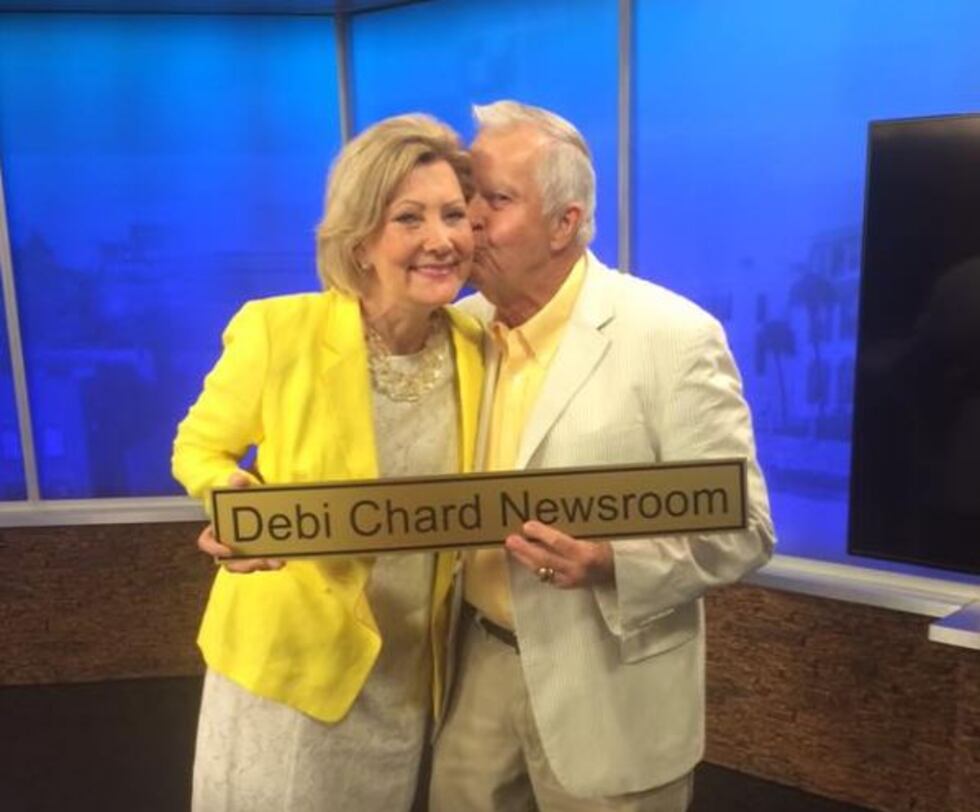
The Sigma Delta Chi Society of Professional Journalists presented her a regional award for Best Feature in 2008, as did United Press International.
In May 2016, WCSC-TV’s newsroom was renamed the Debi Chard Newsroom in her honor and appreciation for 40 years of dedicated service to Live 5 and the surrounding community.
That same year, she won a South Carolina Broadcasters Association STAR Award for a series about Lowcountry transgender teens.
In January 2017, the South Carolina Broadcasters Association honored Chard and her longtime anchoring partner, Bill Sharpe, with their Masters Award. The SCBA Masters Award recognizes lifetime achievement of on-air broadcasters who have made significant contributions to broadcasting in the state and who personify high broadcast industry standards within their communities. The man who signed on WCSC-TV in 1953, Charlie Hall, won the same honor in 1994.
Then, in September 2018, Chard and Sharpe became the first anchor team to be inducted into the Silver Circle. The honor, from the Southeast Chapter of the National Academy of Television Arts & Sciences, is one of the chapter's most prestigious awards recognizing a lifetime of dedication to the television industry.
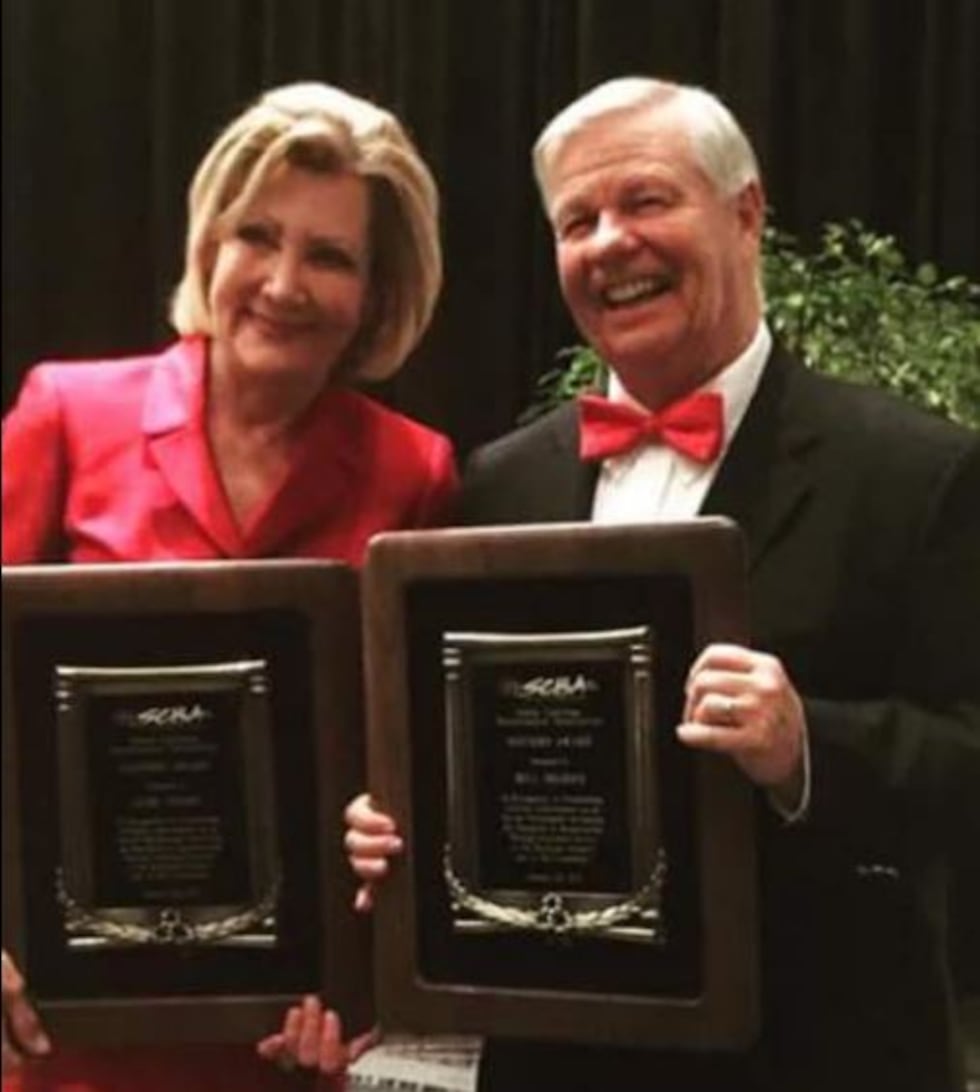
In the past, only individuals had been inducted into the Silver Circle.
"We couldn't pick just one - so for the first time we are inducting an anchor team in to our Silver Circle," an announcement from the chapter stated.
Chard and Sharpe have co-anchored the market's top-rated newscasts together since about 1990.
Among her other prestigious honors are a Paul Harris Fellow from Rotary International North Charleston Rotary Club, and the Book of Golden Deeds from the Exchange Club of Charleston and was honored by the Societe Humanitee.
Chard's earliest journalism work was in her high school newspaper and yearbook. She double-majored in journalism and speech and dramatic arts from the University of Iowa and received her certificate of meteorology from Mississippi State University.
Some of Chard’s first journalism experience goes all the way back to her high school newspaper.
“It’s really interesting because a lot of the people in my high school ended up in some form journalism,” she said. “They were either in marketing or public relations or newspaper writing.”
She grew up reading a Pulitzer Prize-winning newspaper and said she knew journalism was always a wonderful career, especially for women. But over the airwaves, it was a different story.
“I had appeared on television when I was in kindergarten, believe it or not, and several times through my childhood dancing as a performer,” she remembered. “And then in high school I was in a ballet company.”
But there were few women in broadcast journalism by the time she reached college.
“But they encouraged us, and we worked alongside our male students, and it ended up as I graduated that they were looking for women. However, I moved to the South and I was told by one general manager, ‘We have women behind the cameras and women emptying trash can, but we don’t have women on the air,” Chard said.
Radio was already beginning to change that. While in Columbia, working at WCOS radio, she covered local news and did live reports, gaining valuable experience in broadcast journalism with live broadcasts.
When she moved to South Carolina and was looking for a job in broadcast journalism, she went to work as a legal secretary for a firm that included attorney Jay Bender, who is an advocate for the state’s Freedom of Information Act and a media legal expert; and Jean Toal, who would become chief justice of the South Carolina Supreme Court.
By 1976, with several options open to her, Chard and her then-husband moved to Charleston.
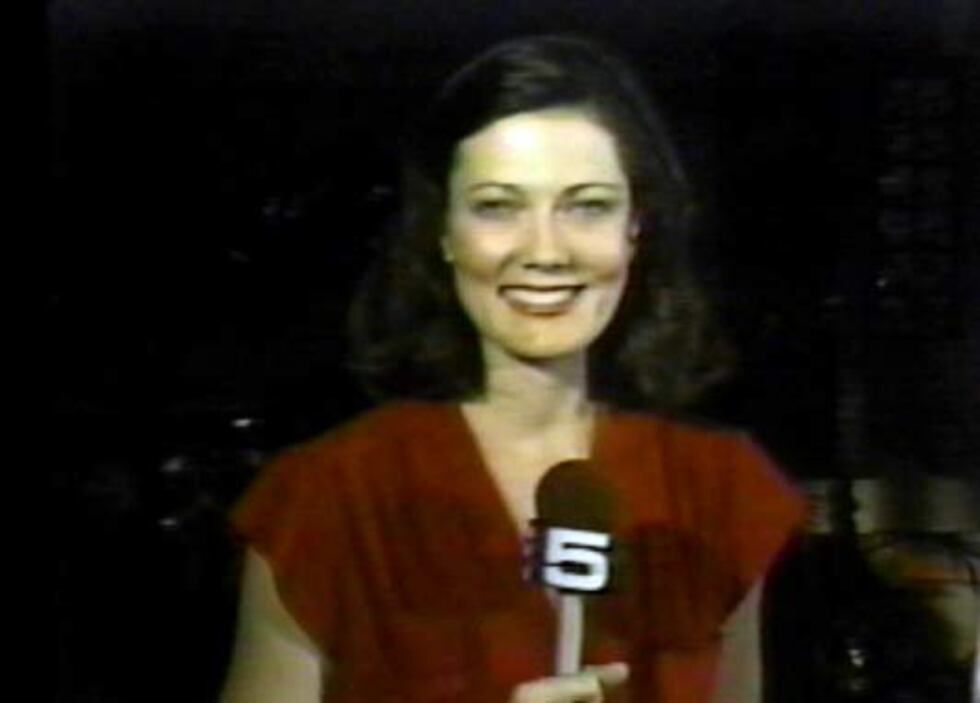
Early that year, she took a job as news director at WCSC radio, and within a couple of weeks, she found herself working six days a week, producing and anchoring the Saturday night news on WCSC-TV.
She remembered the challenges of television when she found herself filling in for a morning TV anchor who had called out sick. A monitor in the studio was not tuned properly and there was no floor director in the studio to give her a cue.
“When it came time to do the news, there was a voice on the other side of the wall yelling, ‘Go! Go!’” she said. “And it gets funnier, because the way they cued you to go to weather — you did 20 to 30 seconds of weather then you wrapped up — when you got the cue, they kicked the door open to the studio. So that was the morning news cut-in back in the day.”
After about three years of working six days per week, she made the move to television full-time.
In more than four decades of broadcasting, she witnessed technology transform the journalism industry. At the start of her television career, film was already on its way out in favor of videotape. Constantly-improving camera technology reduced the size of cameras to the point that broadcast-quality video can now be shot on smartphones.
"Technology has changed journalism," she said in 2016. "Now anyone can be a citizen journalist."
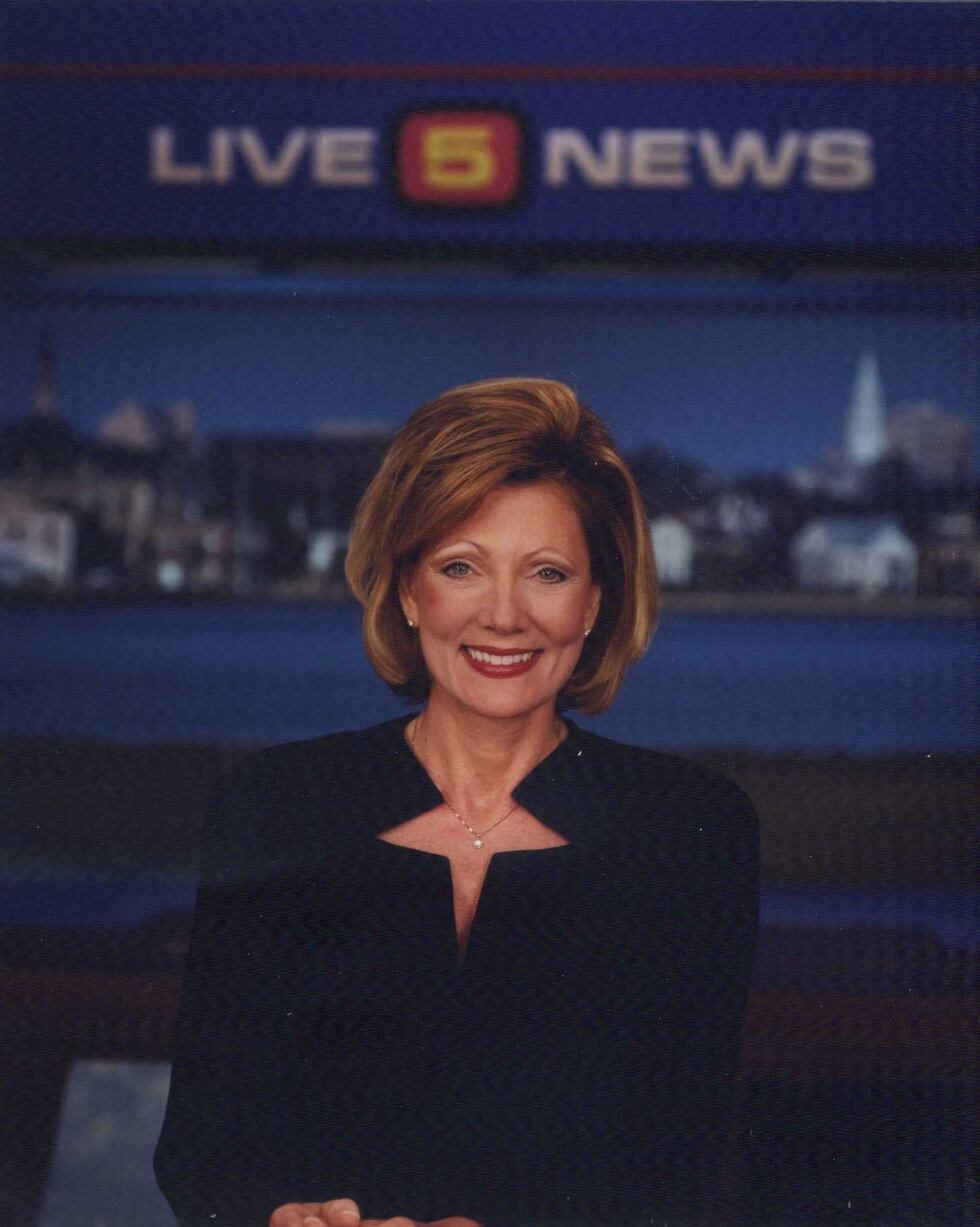
But another big change in the industry, she says, is the public’s interest in journalism.
"I’ve seen the public interest in news grow and as a result we have had so many more newscasts,” she said. “And then with social media, everyone is watching their phones and getting updates so quickly on news, it’s the age of communication.”
She says she watched the change in her own children. One used to be on her phone all the time and then later another was always on the computer.
But technology has not only changed how viewers receive information; it has also drastically changed how journalists cover the news.
“I don’t even know how we did it back in the day because there was no Google,” she said. “How do you verify the information that you had? I think we had a smaller focus on stories, which isn’t all bad.”
Thanks to the amount of information available now, you can do more with stories, she said.
“You can do so much more with your story right now,” she said. “For example, if there’s an accident on Lockwood Boulevard, you can go back and look at trends to see if it deserves a bigger story.”
Chard was news director at a key moment in Live 5 News history: when the station became only the sixth in the nation to purchase a live satellite truck.
"It was unheard of for a market our size to have a satellite truck back then," she says, crediting the station's then-owner, John Rivers, Jr., as always wanting to keep the station at the forefront of technology.
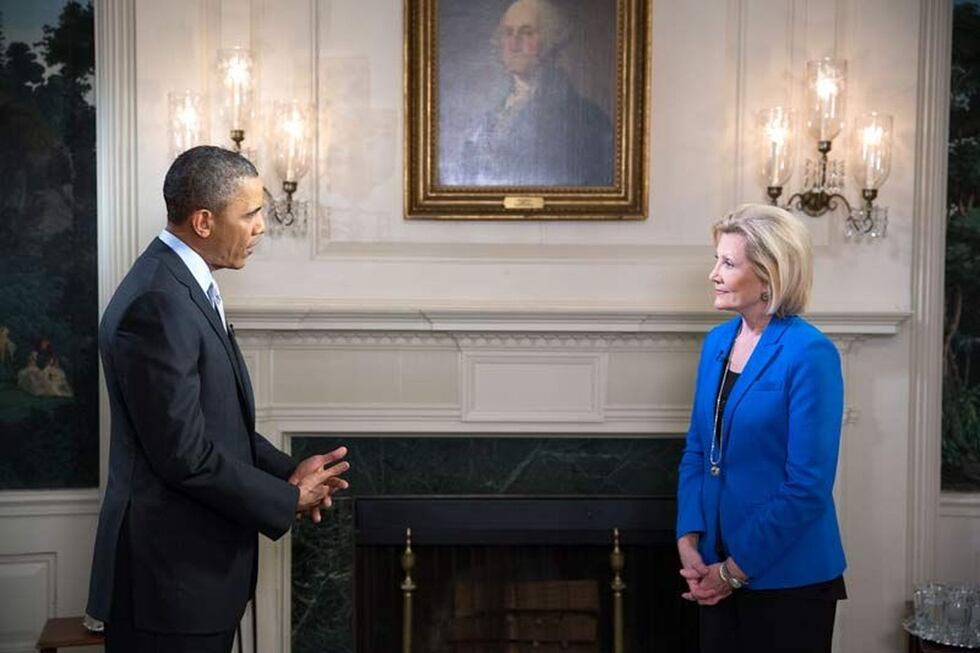
Reporting took her not only across the Lowcountry but around the world. She has reported from Egypt, the former Yugoslavia, the Philippines, China, Taiwan and Costa Rica. She also covered Hurricane Gilbert in Jamaica, Hurricanes Andrew, Katrina and Irene and floods in her native Iowa.
She interviewed former President Barack Obama at the White House.
Her work has included extensive reporting on Boeing, science and medical topics and recent investigations that ranged from people who were victims of false arrest to the dangers of the so-called “brain-eating amoeba” found in warm waters.
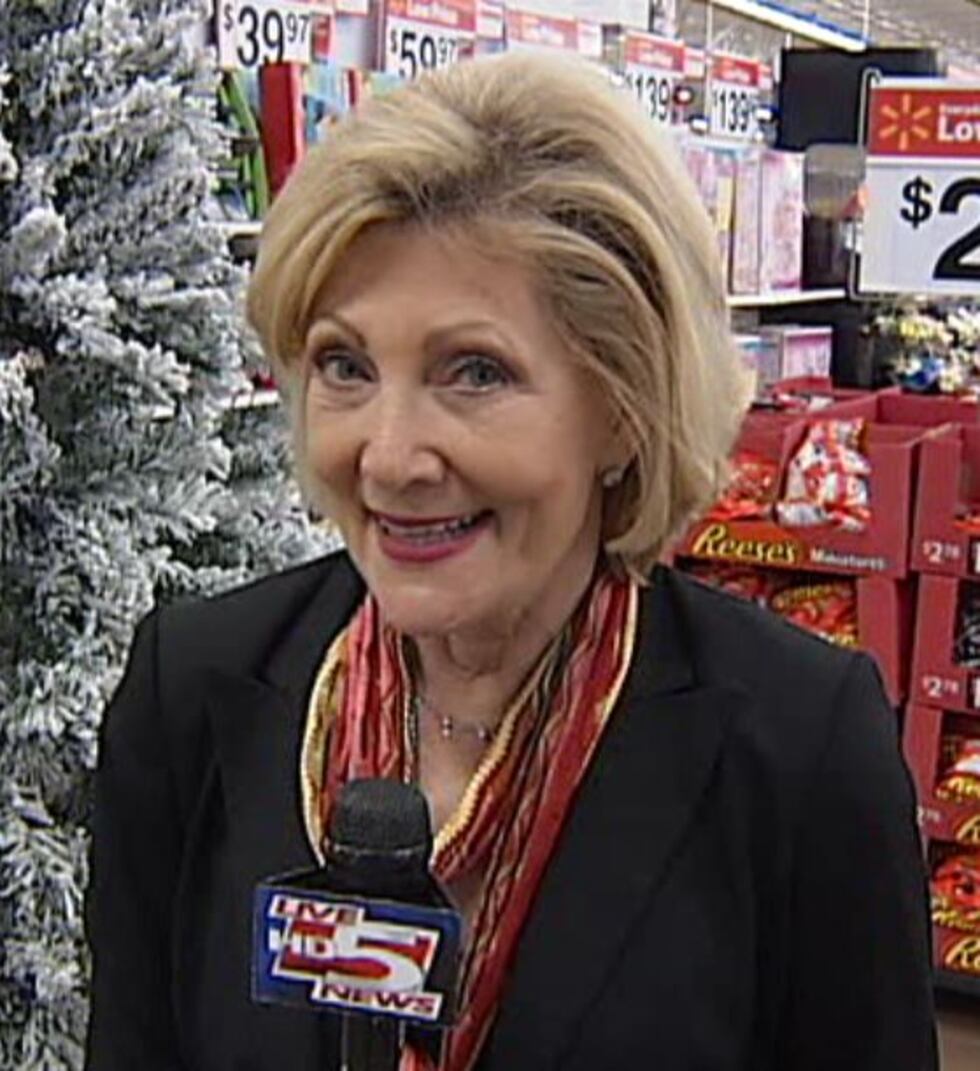
In 1993, Chard started an initiative called “Debi’s Kids” that, for two decades, would serve families with limited resources by helping make their holidays brighter.
The charity was even named an “Angel” by the state treasurer in 2003 for making sure more than 90 percent of the money it collects to the charitable cause.
The impact of Debi’s Kids is among her most joyful times of her career.
"Our toy campaign was important, but it wasn’t something I did, it was what the community did,” she said. “It touched a lot of lives. If you think about the people who gave, and not just the children who received and the families who got the joy of the holiday season because of it, it would take tens of thousands of people who were giving to make that happen.”
Also in 2003, the City of Charleston proclaimed July 15 "Debi Chard Day" in recognition of her work to help needy families.
“Yes, there needs to be more people like you,” one viewer wrote of the honor, “who give of themselves the most precious thing that we have: time.”
Children have always been close to Chard's heart, and children played a major part in the story she calls the most memorable and one of the toughest she has ever covered: the Bosnian War in Croatia.
She and a crew had gone there to cover the war and its impact. After spending the day in the field interviewing refugees, they moved to a hospital where injured children were being treated. But a doctor wanted them to see a film before they interviewed the children who were being treated.
“It was really a medical documentation film,” she said. The images documented the horrific injuries the children suffered. “What happened was the children would go into bomb shelters and primarily little boys around 9, 10, 11, would be the first ones out the door because they’re active, and go out they see a little sparkly thing that looks like a little helicopter and pick it up and it’s an IED.”
After seeing the film, seeing the children in the hospital was heartbreaking.
"As a journalist, it is something you will never forget," she said.
One of the toughest Lowcountry stories she covered was the deaths of nine parishioners at Mother Emanuel AME Church in 2015.
"Knowing the families of the Emanuel 9, that was a difficult story, and still is,” she said. “Knowing how that has impacted them, but also, it’s been a blessing to be able to be with them and talk with them about their loss. That’s a hard one.”
She also remembered covering Hurricane Hugo while trying to keep in contact with her family by phone in between live reports.
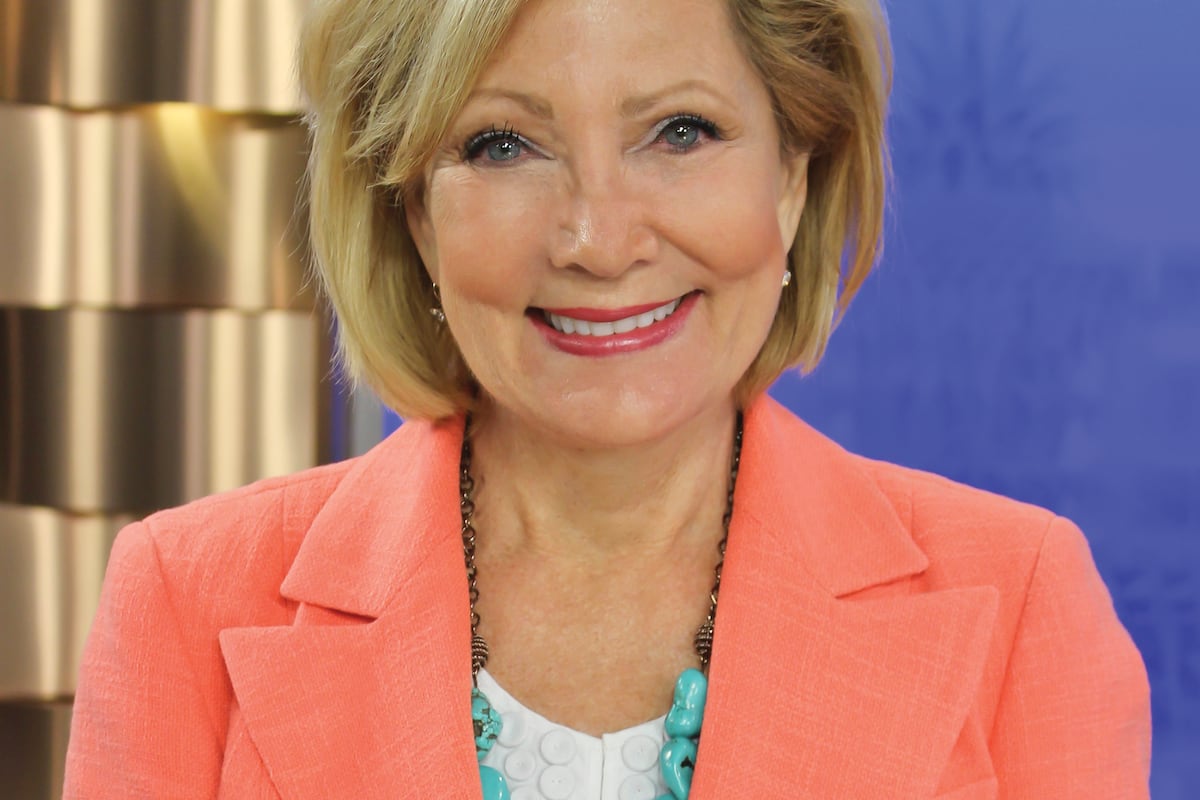
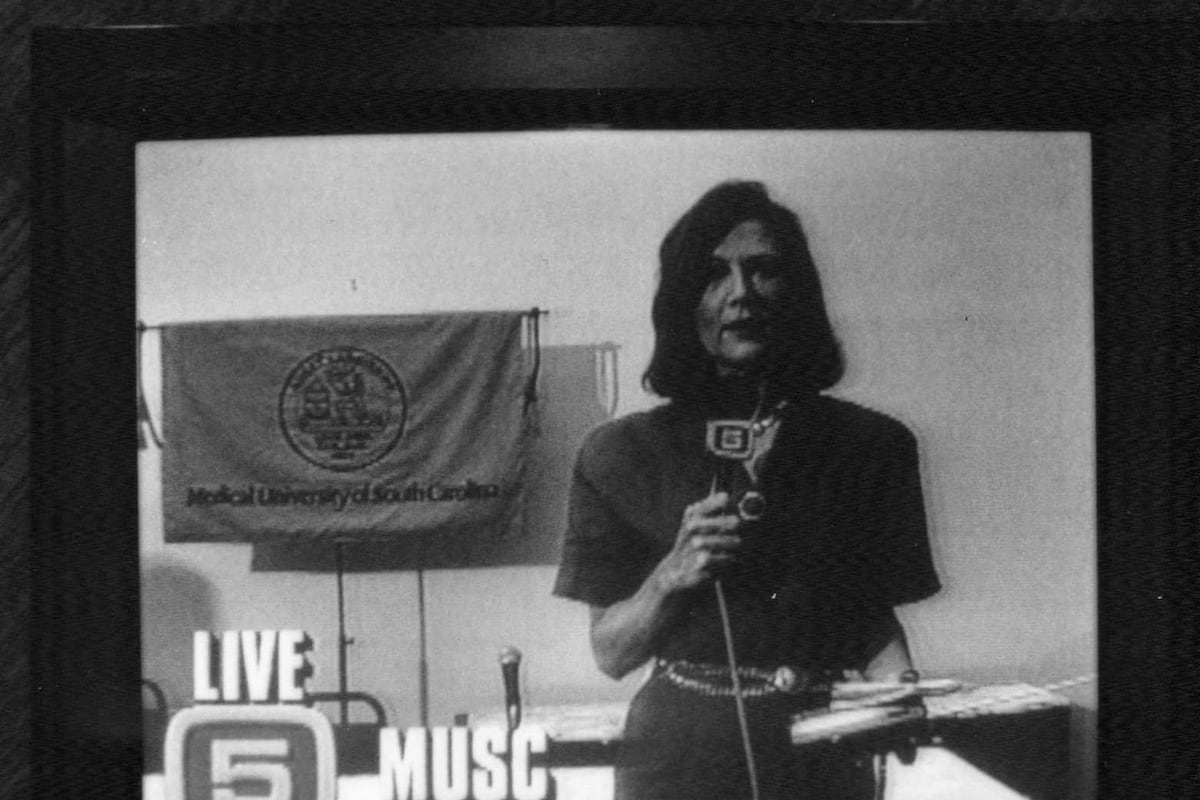
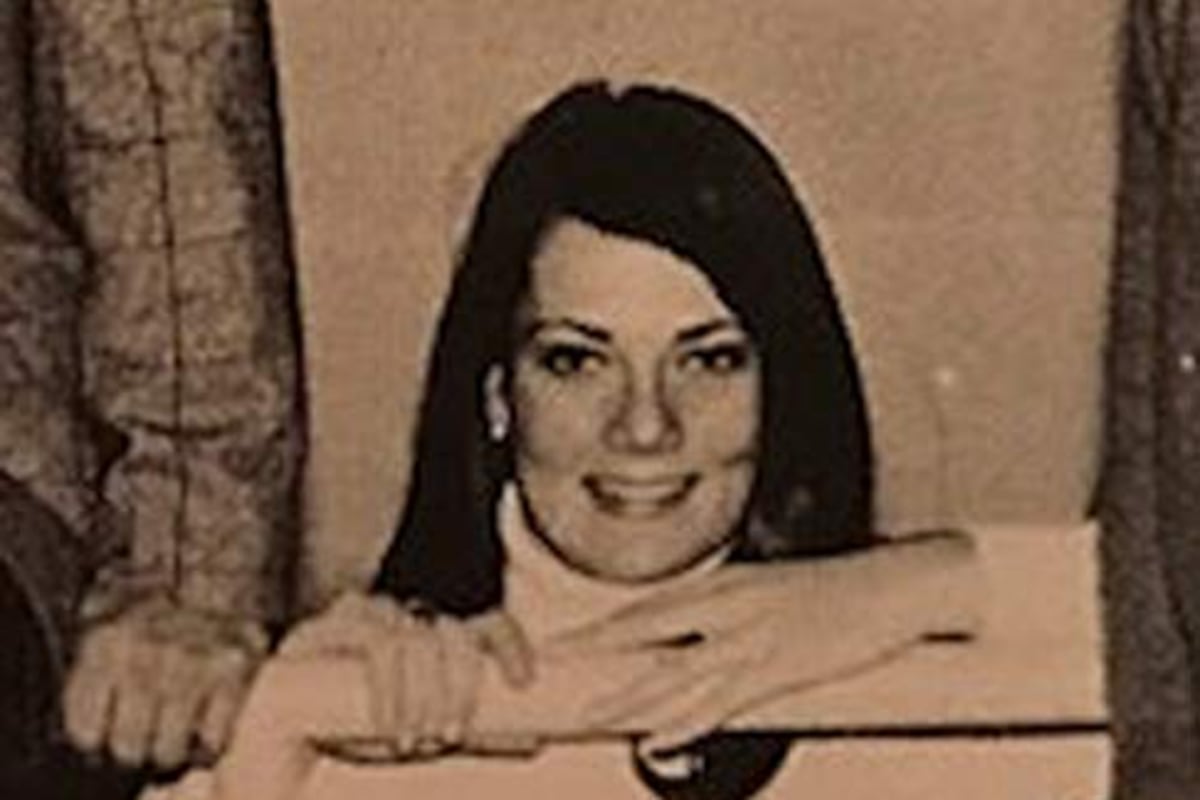
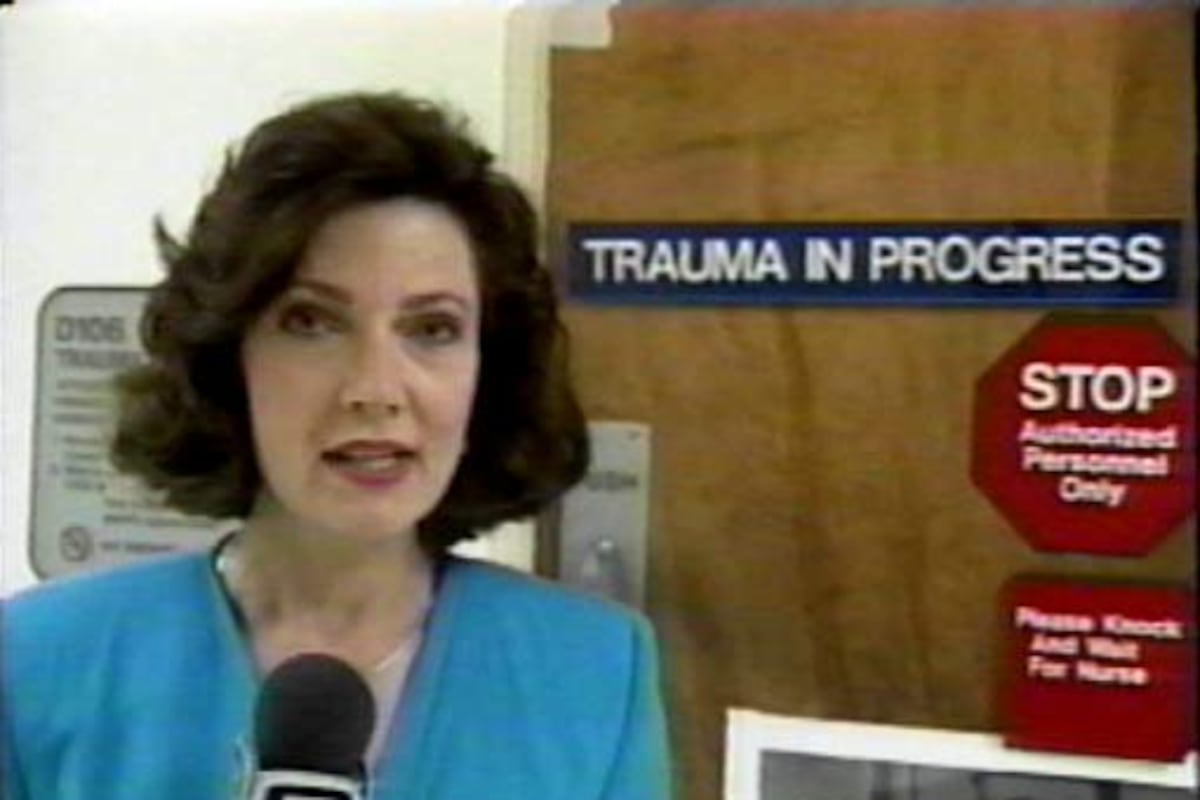
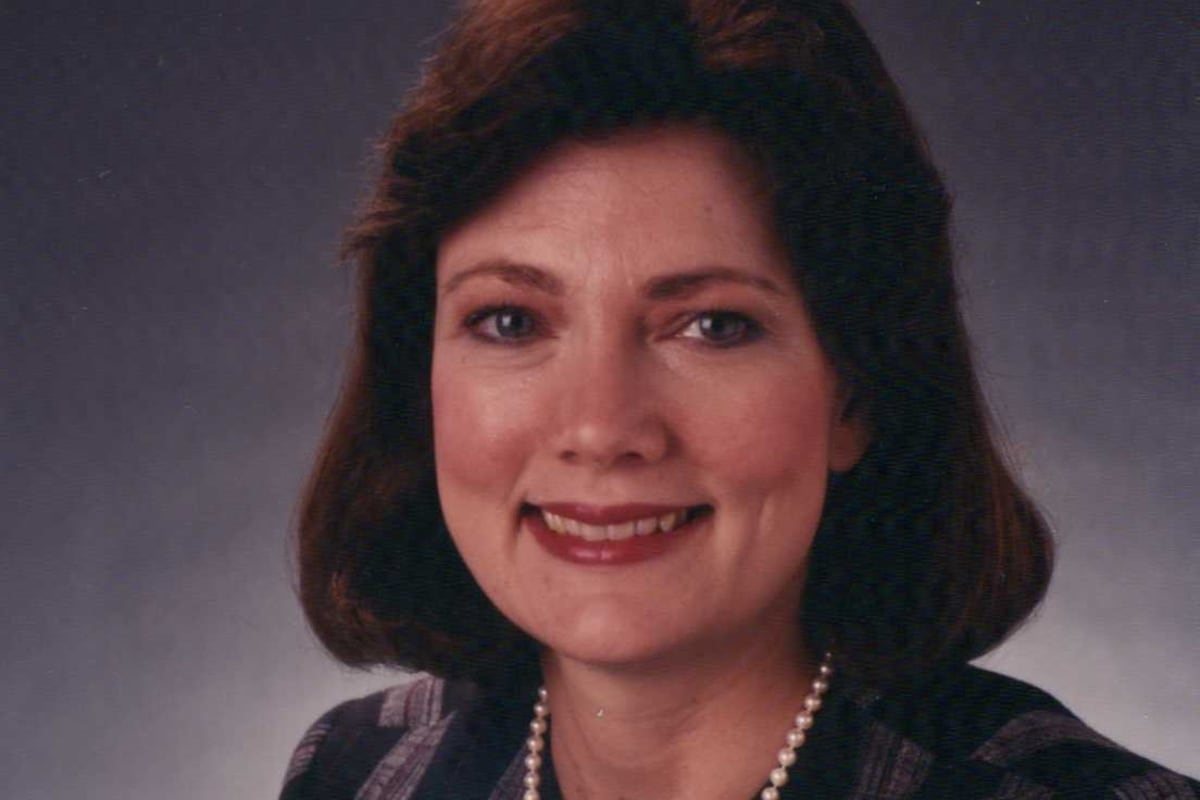
"As a journalist, I was away from my family and they did not leave and so I was on the phone a lot with my husband,” she said. “I remember one conversation so distinctly because I said, ‘What is that noise?’ and he said, ‘I think it’s the siding being ripped off the house.’”
At first light, she and a videographer jumped into a news vehicle and drove to her home to check on her husband and three young children, but there were so many trees down that they couldn’t get through.
“I felt like an Olympic hurdler trying to go see my family,” she said. “But I had actually prayed so hard that night, but our house was not damaged. The Blessed Mother sure helped me that night, that’s for sure.”
The aftermath of the devastating hurricane had a uniting effect on the Lowcountry, she recalled.
“It connected people,” she said. “After Hugo, people talked. It was, ‘What was your damage?’ and ‘Did you stay?’ and ‘What was your experience like?’ and everybody wanted to know.”
Chard says it’s hard to shake the emotional impact of covering difficult stories.
“I think we try to put on a good face while it happens, but it does haunt you,” she said.
One of the first stories she covered, about a farmer facing the loss of his farm, still leaves a vivid memory.
“There had been some tough years here with tomato crops not doing well and this farm had been in the family for generations,” she said. “And after several crop failures, there was a truckers strike. And that one, I went home and cried to my husband. You feel it.”
Through the years, she has formed strong bonds with her longtime on-air colleagues such as Bill Sharpe, whom she says is like a brother, Ann McGill and Raphael James, all of whom also came to television from radio.
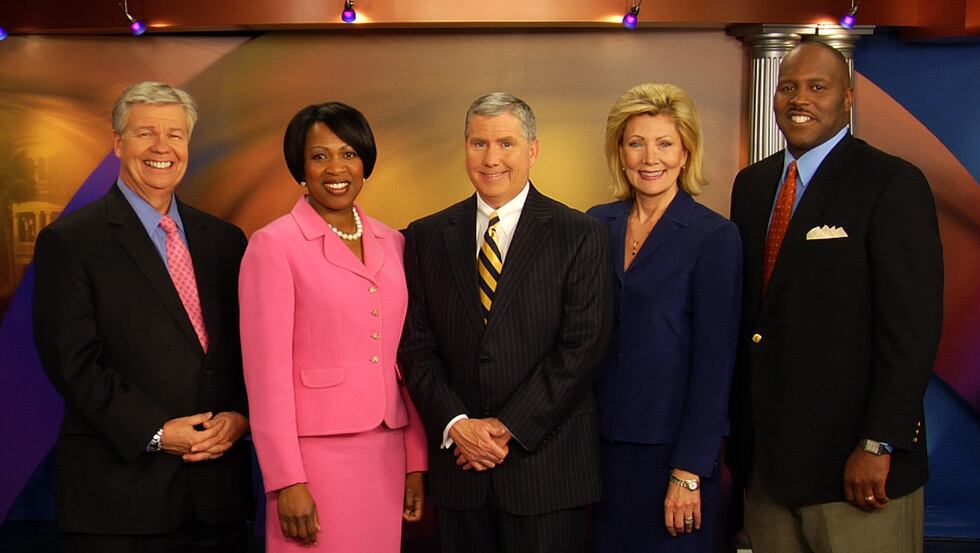
“We say this all the time, the ‘Live 5 Family,’ but you have to be after so many years,” she says. “You know, it’s amazing that everybody here bonds. We are like a family. Even in the days of Charlie Hall, he was the grandfatherly kind of guy, and I was walking through the parking lot really upset about something, and I don’t know what, and he said, ‘Debi, don’t worry about it, it’s not brain surgery!’”
Those considering a career in the field she has been part of four decades may want to know what her best advice would be.
“If you love it, you need to pursue it,” she said. “There are a lot of times when people will tell you that you can’t do something but tune that out. Because in your heart, if you know you can do something, go for it.”
Chard loves writing and storytelling and serving the public.
“I think that’s really something important as a journalist to realize some stories they may not want to hear, but we have to tell them,” she said.
She has also given one other piece of advice to future journalists: "Listen. Learn to be a good listener."
“I feel grateful that they invite us into their living rooms, and their devices now, that they carry us along with them, and I appreciate that,” she said. “But I also feel that in this day and age, we don’t have to disconnect, because I’m there on Facebook, I’m there on Twitter and Instagram, and I hope that we can stay in touch.”
Copyright 2019 WCSC. All rights reserved.





